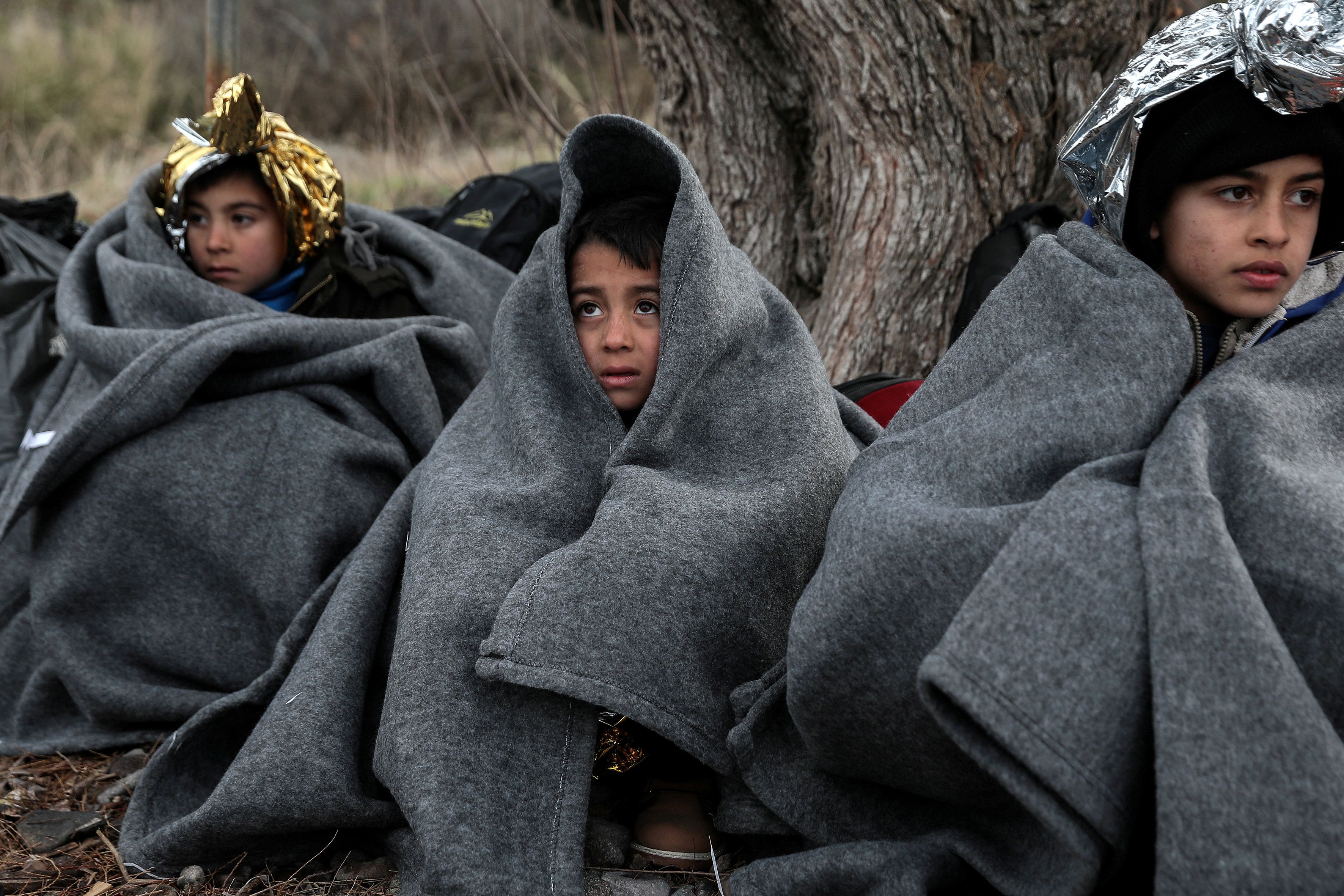March 03, 2020
A fresh humanitarian crisis on Europe's doorstep: A dramatic surge of migrants has arrived on Greek shores in recent days, after Turkey abandoned a 2016 deal with the EU under which it has housed some 3.7 million Syrian refugees in exchange for billions of euros in aid. Ankara took this step after a dangerous flare up last week in Syria, where Turkish troops are trying to halt a Syrian assault on Idlib province that's driving more refugees across the Turkish border. Some 10,000 migrants have since tried to breach the Greek border in recent days, leading Greek police to use tear gas and other riot control methods. One child died after a makeshift boat capsized off the Greek island of Lesbos, a main destination for migrants. Meanwhile, Greece's prime minister announced Tuesday that all asylum applications would be frozen while Athens deals with the emergency. Brussels has pledged emergency aid.
Netanyahu wins, but how big? With about 90 percent of votes in from Israel's parliamentary election, its third in less than a year, incumbent Prime Minister Benjamin Netanyahu's Likud party came out victorious, winning four more seats than its rival Blue and White party. At the time of this writing, Netanyahu is still two seats short of a 61-seat parliamentary majority. If Netanyahu, who is set to face a corruption trial on March 17, gets to 61 seats by merging with his allies on the right, he could seek parliamentary immunity from graft charges. But if the tally is a 60-60 split with the opposition, Netanyahu might need to entertain some sort of unity government with Blue and White party leader Benny Gantz. While much will be determined in the days ahead, one thing is clear: Netanyahu has won an election that was essentially a referendum on whether his legal troubles ought to disqualify him from leadership.
Putin isn't giving up any ground, literally: Russian President Vladimir Putin has submitted a flurry of proposed constitutional amendments, including measures that would effectively ban same sex marriage, criminalize blasphemy, and prevent Russia from giving any part of its territory to a foreign power. That last measure will directly affect two major territorial disputes: one with Japan over the fate of islands occupied by Soviet forces during World War Two, and another with Ukraine over the fate of Crimea, which Moscow has politically and economically integrated into Russia since illegally annexing the peninsula in 2014. It seems that even for the country with the largest land territory on earth, every hectare counts.
More For You
- YouTube
At the 2026 World Economic Forum in Davos, GZERO’s Tony Maciulis spoke with Ariel Ekblaw, Founder of the Aurelia Institute, about how scaling up infrastructure in space could unlock transformative breakthroughs on Earth.
Most Popular
Haitian soldiers keep a watch outside the venue where businessman Laurent Saint-Cyr is set to be designated as president of Haiti's Transitional Presidential Council (CPT), in Port-au-Prince, Haiti, August 7, 2025.
REUTERS/Fildor Pq Egeder/File Photo
On Friday, US officials warned the transitional council in charge of Haiti not to remove interim Prime Minister Alix Didier Fils-Aimé, ahead of a deadline for the council to step down on Feb. 7.
Moldovan President Maia Sandu speaks during a Council of Europe diplomatic conference to launch the International Claims Commission for Ukraine, aimed at handling compensation claims related to Russia's war in Ukraine, in The Hague, Netherlands, December 16, 2025.
REUTERS/Piroschka van de Wouw
The president of the tiny eastern European country has suggested possibly merging with a neighbor.
Hard numbers: US pitches “New Gaza,” Japan paves way for snap elections, “Sinners” smashes records, & More
Jan 23, 2026
Middle East negotiator and son-in-law of President Trump, Jared Kushner talks with Israeli diplomats following a joint press conference in the State Dining Room of the White House in Washington, DC, USA, 29 September 2025.
$25 billion: The minimum amount of investment required to fulfil Jared Kushner’s ambitious property plan for Gaza.
© 2025 GZERO Media. All Rights Reserved | A Eurasia Group media company.
